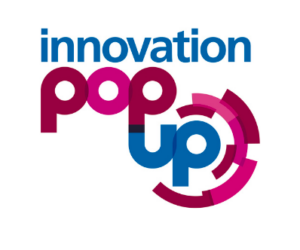One in ten people need surgery each year, but waiting times are at an all-time high with 7.2 million people awaiting routine treatment. This means people are living with prolonged symptoms, added anxiety and employment issues, in addition to paying for additional care. This affects the quality of life for patients, carers, and their families.
Demand for hospital care is limited by the availability of acute care beds with over 13,000 patients occupying beds (one seventh of total NHS bed capacity) who are medically fit but do not have access to suitable community and social care support. Technology can help to address these problems by making surgical care pathways more efficient. But uptake of technologies into routine care is slow with only a small number making it and benefitting patients.
We are based in an area of the country with a strong regional HealthTech cluster linked to the West Yorkshire HealthTech strategy. This will allow fast access to knowledge and expertise to overcome barriers that slow uptake of new technologies and ideas into the NHS. We will provide a supportive and inclusive environment with opportunities for multidisciplinary teams to work together.
Patient and public involvement and engagement will be part of all our activities to make sure our research is relevant to all patients. We will make sure equality, diversity and inclusion are the at the centre of our strategy so that the use of technology works for every patient.
Partnerships
Leeds Teaching Hospitals NHS Trust (LTHT) and University of Leeds (UoL) are ideally placed to host this HealthTech Research Centre in Accelerated Surgical Care. NIHR investment in the former two MICs (In Vitro Diagnostics and Surgical Technologies Co-operatives) has enabled us to grow unequalled capability and capacity in evaluating surgical diagnostics and devices, creating a national translational network with strong international profile.
The National Institute for Health and Care Research (NIHR) HealthTech Research Centre (HRC) in Accelerated Surgical Care is part of the city’s £40 million NIHR infrastructure.
Comprising three centres of excellence – NIHR Leeds Biomedical Research Centre, NIHR Healthtech Research Centre and NIHR Leeds Clinical Research Facility, each produces world-leading research.
Underpinned by the NIHR@Leeds Forum, academic researchers, clinicians and industry innovators are increasingly collaborating across these centres to cover the entire health research journey, taking new discoveries from ‘bench to bedside’ to improve people’s health.
Leeds hosts the national NIHR Research Delivery Network Coordinating Centre (RDNCC), and the regional Yorkshire and Humber Regional Research Delivery Network.
This outstanding NIHR@Leeds infrastructure is part of Health Innovation Leeds, one of the UK’s most interconnected ecosystems for health and care research and innovation and independently ranked as a top UK health innovation hub.
Find out more: https://healthinnovationleeds.com/
Recognising that surgical innovation is not “risk free”, the HRC will work with the NIHR Y&H Patient Safety Research Collaboration to ensure accelerated translation is tempered by the need for robust patient safety. Our £650m Hospital of the Future, the first UK “digital hospital by design”, and its industry-facing Innovation Pop-up open further opportunities.
Accepting that no single NHS/University partnership possesses the capability to navigate the complexities of the whole MedTech innovation pipeline, we will bring in expertise from other organisations as required.
The initiative builds on the work of the NIHR Colorectal Therapies Healthcare Technology Co-operative (2013 – 2017) and the NIHR Surgical MedTech Co-operative (2018 – 2023)



